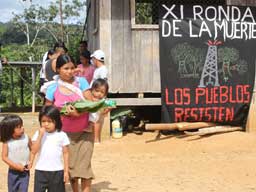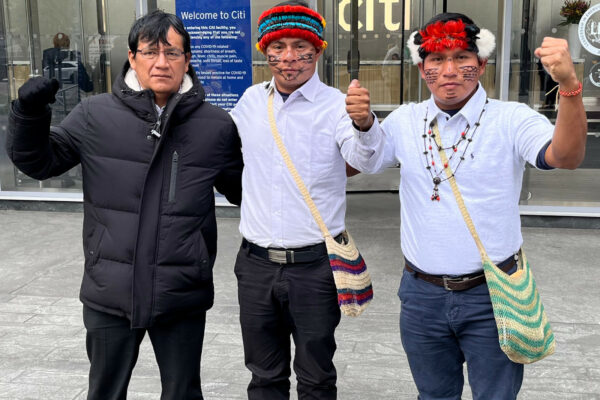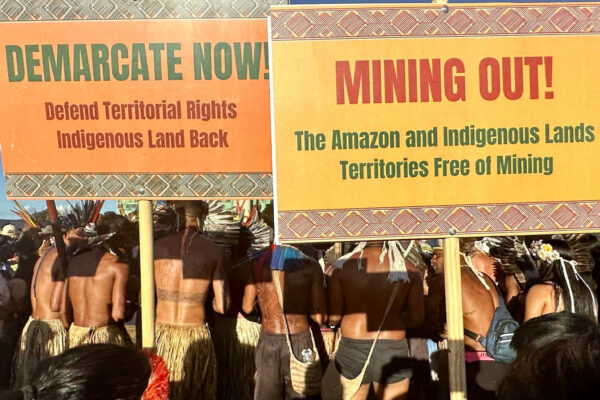Ecuador improperly handled relations with the indigenous community of Sarayaku a decade ago in a dispute over oil exploration, president Rafael Correa said Tuesday in a meeting with the head of the Inter-American Court of Human Rights, which is hearing a case against the country about the issue.
“One has to recognize the errors of the state and if the community has to be remediated, well, that will be done,” Correa said in Guayaquil. His comments were published by government newswire Andes.
The case stems from a dispute over oil exploration in an area the government plans to offer for development to state and private oil companies later this year. The ruling may set a precedent for the consultation of indigenous communities before natural resources can be exploited on their lands for Ecuador specifically and Latin America in general.
The IACHR is holding a series of hearings in the Ecuadorian port city after its president, Diego Garcia-Sayan, and judge Rhadys Abreu visited Sarayaku on Saturday. The visit marked the first-ever on-site visit of the IACHR in an indigenous territory and is the final event in the hearing of the case brought by the community of rainforest Quichuas against Ecuador. The court is to issue a ruling later this year.
Argentinian oil company CGC and Conoco-Phillips’ Burlington in 2002 signed an agreement with Ecuador to explore Block 31 including Sarayaku, in the eastern province of Pastaza. The Sarayaku Quichua vehemently opposed the company’s entry. Military troops that entered the territory to enforce the contract illegally detained individuals and cut transit routes on the Bobonaza River, the community’s main transit route. Community representatives sued because of alleged human rights violations.
CGC carried out only a third of the planned seismic exploration, estimating reserves of around 100 million barrels, roughly half of Ecuador’s annual production. Remediation of the potential danger stemming from remaining explosive charges in the ground also forms part of the lawsuit.
Correa’s statement Tuesday contrasts with comments he made Saturday during his regular weekly television and radio show, when he blamed the suit on interference from Belgian and French non-governmental organizations.
The government originally disputed the charges and defended the contract signed by president Lucio Gutierrez, who was ousted in 2005 amid massive street protests and is among the populist Correa’s leading opponents.
The plaintiffs first criticized the IACHR visit as a ploy to delay a final ruling, but Sarayaku residents received Garcia and Abreu euphorically on Saturday.
During that hearing, Alexis Mera, Correa’s chief legal adviser, offered the community a deal to repair damage and pay compensation. Community representatives, however, voted to refuse the government’s offer before the court issues its ruling. Ecuadorian indigenous organizations demand a veto right over resource development on their lands.
Separately, Mera told reporters that the planned offer of oil exploration and production contracts in Pastaza and the adjacent province of Morona Santiago will go ahead – despite Sarayaku’s objections.
Sarayaku representatives said they will oppose the upcoming tender.














